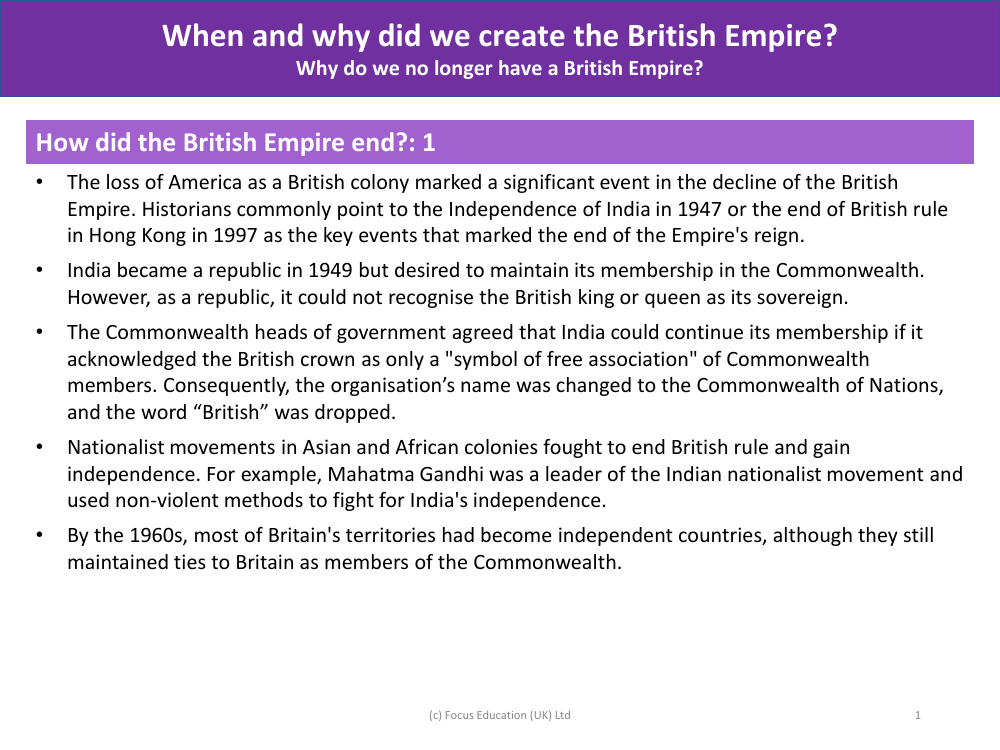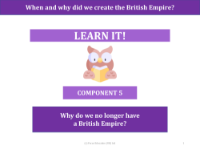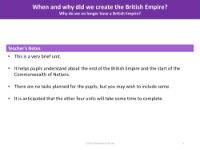How did the British Empire end? - Info sheet

History Resource Description
The disintegration of the British Empire was a complex process that unfolded over several centuries, with pivotal events marking its decline. A significant early blow was the loss of the American colonies, but historians often cite India's independence in 1947 and the transfer of sovereignty in Hong Kong in 1997 as the bookends to the Empire's demise. India's transition to a republic in 1949, while still wishing to remain within the Commonwealth, necessitated a redefinition of the organisation. The Commonwealth of Nations emerged, dropping the 'British' prefix and acknowledging the British crown merely as a symbol of the free association of its members. The Empire's dissolution was further accelerated by nationalist movements across Asia and Africa, with figures like Mahatma Gandhi in India championing non-violent resistance to secure independence. By the 1960s, the majority of Britain's former territories had achieved independence but maintained connections with the former imperial power through Commonwealth membership.
The two world wars played a significant role in the Empire's decline. Post-World War I, dominions signed peace treaties and joined the League of Nations as independent states, a precursor to their autonomy. The onset of World War II saw these dominions declaring war independently of Britain, signifying their autonomous status. The wars, especially World War II, left Britain economically weakened and less interested in sustaining its imperial reach, facilitating a transition towards a Commonwealth model. This transformation was marked by a shift from imperial dominion to a group of nations united by historical ties, shared values, and mutual cooperation, rather than by colonial governance.



